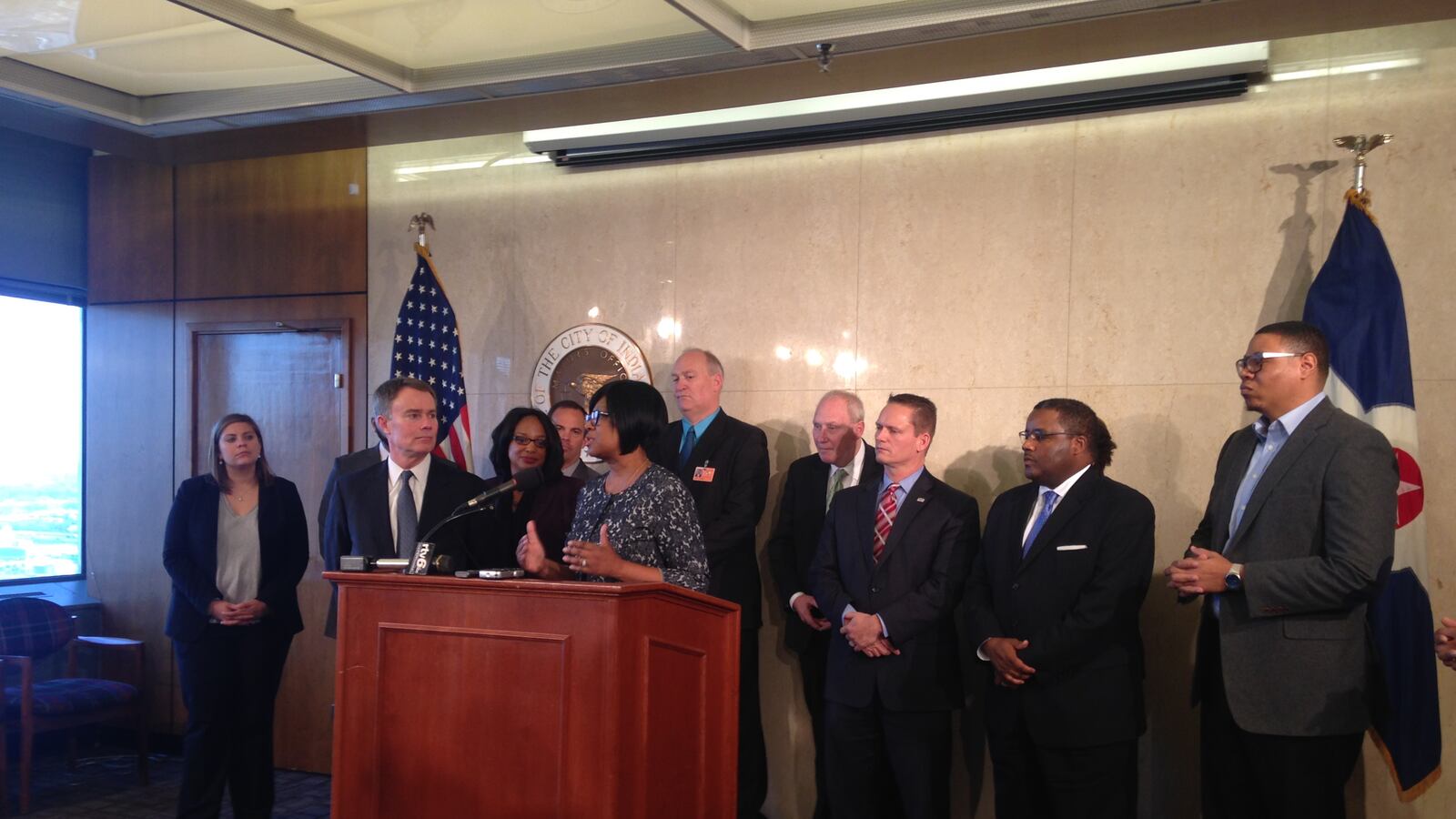Will Indianapolis’ new mayor, Democrat Joe Hogsett, be the same sort of activist when it comes to schools as his predecessors who championed charter schools?
That remains to be seen, but the city’s school district leaders today took the first steps toward finding out.
Hogsett struck a deferential pose at a summit with Marion County superintendents in his office, inviting their insights on the education agenda he laid out during the campaign and praising their work improving graduation rates.
“Today’s conversation was the beginning of what I hope will be continued communication,” Hogsett said.
The summit included superintendents from township districts and Indianapolis Public Schools, following on one of Hogsett’s campaign promises: to expand the discussion about education in the city to include more conversation about township schools and less heavy focus on IPS and charter schools.
The group discussed early childhood education, school discipline, teacher recruitment and retention, poverty and post-graduation transitions to college and careers over two hours. But Hogsett did not push for any specific policy steps.
That’s in line with the approach that Hogsett espoused during the election campaign, when he told Chalkbeat that he saw the mayor’s role in education as a “convener” of education discussions and supporter of city public schools.
But in Indianapolis, the mayor’s office has rarely been on the sidelines for education debates over the 16 year run of mayors Greg Ballard and Bart Peterson. Their advocacy of charter schools as a way to improve education has shifted the landscape so that more than 10,000 students now attend charter schools sponsored by the mayor’s office. Hogsett has said little about how closely he will follow their lead by opening more schools.
In fact, charter schools did not even come up in the conversation with superintendents, Hogsett said. He introduced the superintendents to two leaders responsible for overseeing his office’s education agenda: Ahmed Young, the new deputy mayor for education, and Kristin Hines, a Ballard administration holdover who directs of the mayor’s charter school work.
Hogsett said he is open to discussing an effort by former Indianapolis Public School Board member Caitlin Hannon to build a unified enrollment system for public and charter schools in Indianapolis, but he stopped short of urging more school districts to participate.
“I am mindful that the role of the mayor of the city of Indianapolis is not to tell local public school corporations how to run their business,” he said. “The reason for the meeting today is so I can be aware of the challenges that they face.”
Common enrollment — a single form parents can fill out to request a spot in IPS or charter schools — has strong support from some school and community leaders but has been met by skepticism from others.
When it came to today’s release of ISTEP scores, which plunged for Indianapolis schools and schools across the state in 2015, Hogsett again deferred to superintendents. He said he was focused more on graduation rates and how well prepared students are for jobs or college to judge schools than test scores.
As a former U.S. Attorney, Hogsett instead pushed a theme of using improved education and job training for kids as a way to reduce poverty and crime.
“The challenge is not to rescue kids from the criminal justice system,” he said, “but to try to figure out ways that we can keep our kids out of the criminal justice system altogether.”
Peterson launched an aggressive push to open charter schools after his election in 2000, arguing they would give kids better options for learning and put pressure on the IPS to respond with improvements of its own. By the time he lost his second reelection bid in 2007, Peterson oversaw a fast-growing portfolio of 14 charter schools.
His Republican replacement, Ballard, largely continued Peterson’s pro-charter school policies, nearly doubling the number of mayor-sponsored charter schools during his two terms.
Hogsett said he supports the charter schools that Peterson and Ballard helped launch since 2002, but also called for tough accountability for charter schools that fail.

